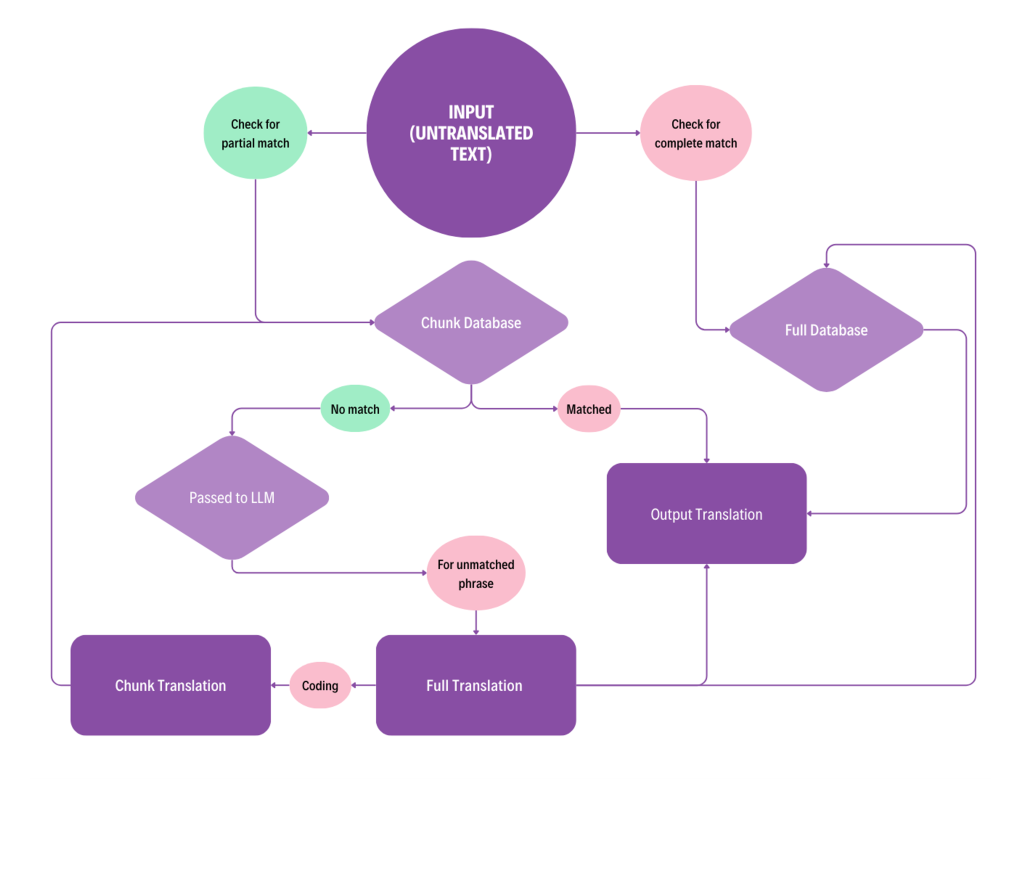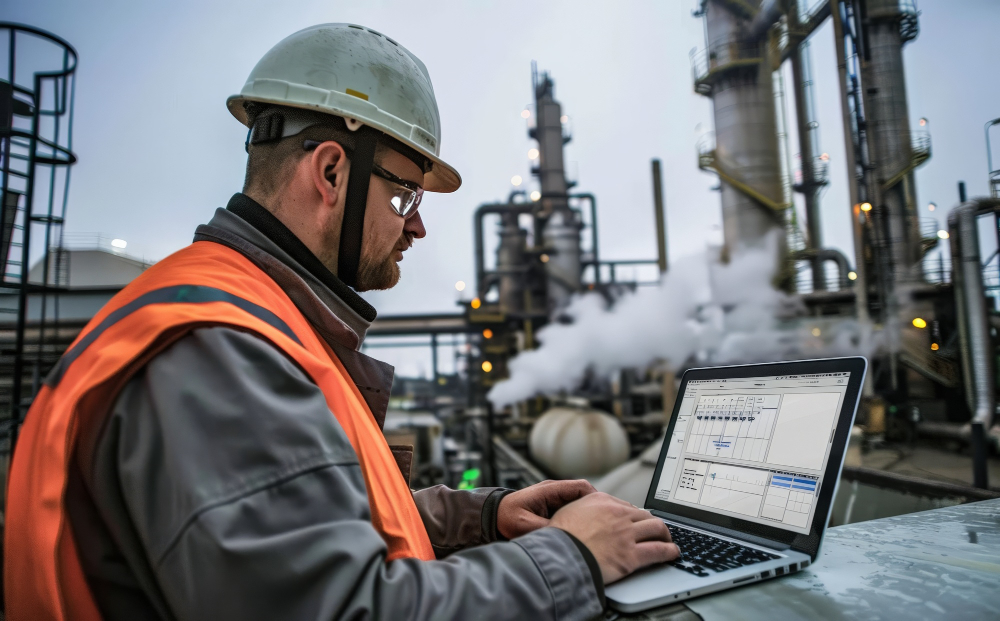An intelligent translation AI agent built to convert master data from any language to any required language—accurately, efficiently, and at scale. Designed specifically for enterprise use, it ensures that technical descriptions, attributes, and domain-specific terms are translated consistently and contextually across systems.
Automatically translate master data records—materials, services, and more—between languages without losing technical accuracy.
Understands and retains technical terms and industry-specific jargon across sectors like manufacturing, oil & gas, energy, and more.
Goes beyond literal translation by analyzing context to ensure correct grammar, syntax, and technical meaning.
Translates the Integrity platform UI into local languages to support global teams.
Automatically translates product and service attributes within datasheets for seamless global access.
Discover how Verdantis’ AI-powered solutions can optimize data governance, enhance compliance, and drive operational efficiency.
In the pursuit of efficient, unified global operations, organizations face a hidden yet pervasive challenge—multilingual MRO (Maintenance, Repair, and Operations) master data. Whether it’s in manufacturing, oil & gas, energy, or utilities, most large enterprises operate across borders. As a result, they inherit localized data in multiple languages, which, if unmanaged, can cripple ERP transformations, procurement efficiency, and plant maintenance workflows.
While traditional language supplementation techniques in ERP systems attempt to fill in missing language values for descriptions, they often fall short. That’s where AI-powered multilingual translation steps in—not just to translate, but to understand, normalize, and enrich MRO data intelligently.
A comprehensive master material cleansing process goes beyond just cleaning entries. It includes:
MRO data normalization to standardize units and formats
MRO data scrubbing to remove duplicate or outdated records
MRO data enrichment with OEM specs, attributes, and reference data
MRO material master data cleansing and classification using global taxonomies
A frequent issue in MRO master data is the absence or inconsistency of language-specific descriptions. For example, an item like “Hex Head Bolt, Stainless Steel, M10 x 50” may appear in English at one plant, be partially translated in German at another, and be listed without key specifications in a Spanish database.
This fragmentation causes:
Confusion among buyers and maintenance teams
Redundant procurement and inventory buildup
Missed opportunities for part consolidation
Project delays due to part misidentification
Traditional ERP features offer partial remedies, inserting fallback descriptions in a default language (often English) when translations are missing. However, these solutions are rigid and do not account for complex, domain-specific terminology or attribute alignment across languages.
AI-based translation engines trained on domain-specific data (like MRO materials) go well beyond basic word substitution. They understand:
Linguistic nuances in technical terms (e.g., “bearing” as a mechanical part vs. direction)
Structural dependencies such as dimension sequencing, brand references, and classification codes
Cross-lingual attribute matching for normalized cataloging
With these capabilities, AI transforms translation into a business enabler.
A Portuguese description “Rolamento rígido de esferas 6204 ZZ” is automatically translated to:
“Deep Groove Ball Bearing 6204 ZZ, Shielded”, retaining both function and format.
A Chinese record listing “电动执行器” is interpreted contextually as
“Electric Actuator”, with matching manufacturer and voltage attributes sourced from related entries.
A German material labeled “Edelstahlschraube M10 x 50, Sechskant” becomes
“Stainless Steel Hex Head Screw M10 x 50”, standardized to global naming convention templates.
AI doesn’t stop at translating. It goes further to:
Deduplicate entries across languages and plants using fuzzy matching and AI models
Enrich missing fields such as specification, unit of measure, and manufacturer code
Normalize attribute order and syntax for global consistency
Classify parts into taxonomies like UNSPSC or eCl@ss
The outcome: a clean, multilingual catalog that supports global sourcing, maintenance planning, and accurate reporting.
Where supply chain disruptions and plant downtime can cost millions, clean and consistent MRO data is no longer optional. AI-powered multilingual translation delivers:
ERP-readiness for global system rollouts (e.g., SAP S/4HANA migrations)
Inventory optimization through part consolidation and elimination of duplicates
Procurement leverage via centralized visibility into global material usage
Maintenance efficiency with clear, standardized part descriptions at every site
Auto Translation is fully integrated with Verdantis’ data governance tools like Integrity and Harmonize, making it an ideal solution for enterprises undergoing ERP transformation, M&A, or global master data initiatives.:
Maintains terminological consistency across records, ensuring compliance and clarity.
Translates millions of records at once using AI automation—faster than manual efforts.
Easily adapts to new languages, industry domains, and client-specific terminologies.
Auto Translation by Verdantis is an intelligent translation engine built to convert master data from any language to any required language—accurately, efficiently, and at scale. Designed specifically for enterprise use, it ensures that technical descriptions, attributes, and domain-specific terms are translated consistently and contextually across systems.
The Auto AI Translation process is powered by a combination of database matching, chunk-based translation, and large language models (LLMs) for unmatched entries. The diagram here illustrates the full translation logic:

The translation starts with raw text from master data records.
-The system first checks for a complete match in the full database.
-If not found, it checks for partial matches in the chunk database.
-If a match is found, it retrieves the output translation.
-If unmatched, the phrase is passed to an LLM to generate accurate translation contextually.
For unmatched phrases, chunk-based translation is supported with semantic coding for better consistency and accuracy.
Final output includes matched and LLM-translated content delivered seamlessly into the system.
Processes 10,000+ records in under 2 minutes, including parsing and post-processing. Supports near real-time translation for smaller batches and individual entries.
Delivers 97.2% accuracy benchmarked against expert human translations. Built-in glossary enforcement ensures consistency in repeated terms and technical language.
Supports 30+ languages, including English, French, Spanish, Chinese, Arabic, and more. Offers domain-specific tuning for manufacturing, ERP, and industrial vocabularies.
Utilizes 2.8M+ phrase pairs across industries. Continuously updated with client-specific terminology to improve speed, reuse, and contextual accuracy.
Verdantis seeks alliances with leading consulting companies, system integrators, technology vendors, and service providers to assist Global 2000 companies in their ERP, MDM, and supply chain management initiatives. The Verdantis Partnership Program provides an effective framework for working together in joint client engagements, development efforts, and coordinated marketing activities.




Carnegie Center, Suite 300,
Princeton, NJ 08540, Ph: +1 (866) 987-4463

Times Square, 3rd Floor, “B” Wing, Andheri Kurla Road,
Andheri East, Mumbai – 400059
Copyright © 2025. All Rights Reserved.